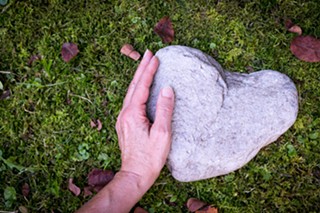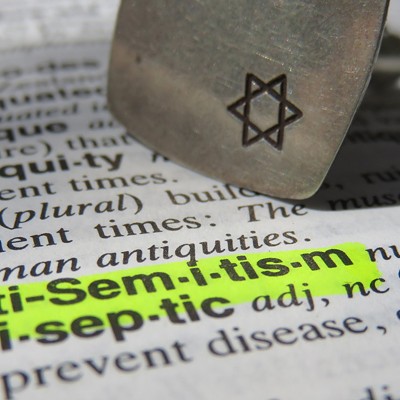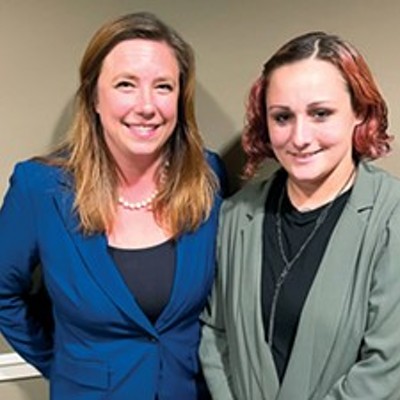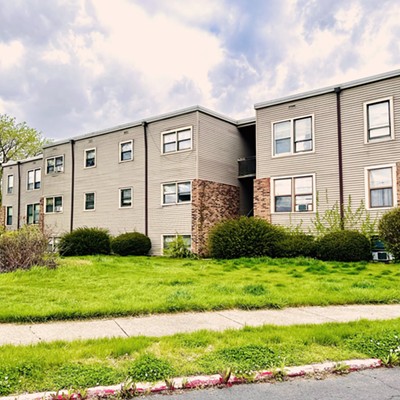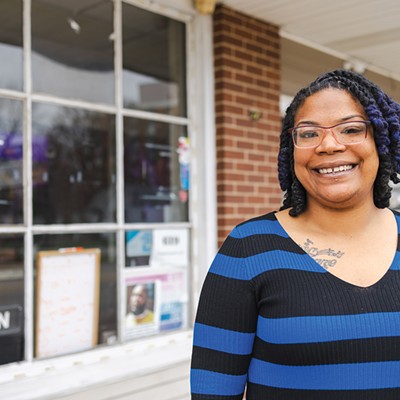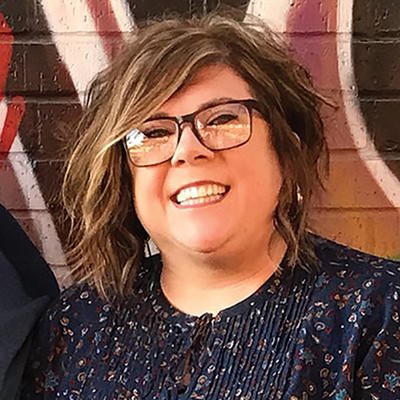"They'll make fun of me and give me a goofy name."
That was my mother's reaction to the notion of her body being donated to a medical school for students to dissect.
I was a bit surprised by the vehemence she expressed against the idea. After all, she was a registered nurse married to a veterinarian. She knew the importance of medical professionals learning anatomy.
Still, she wanted nothing to do with it. My then-20-something self wanted to say, "But Mom, you'll be dead. You won't know the difference."
The options for disposing of human remains in Illinois are limited. You can be buried, entombed or cremated. But a bill pending before the Illinois General Assembly would add another option: composting.
That process turns human remains into soil over the course of a few weeks. Companies that offer this service place a person's remains in a container with wood chips, straw and other organic material and heat it to accelerate the growth of bacteria that breaks down the body.
LeNette Van Haverbeke, a representative of Illinois Cemetery and Funeral Home Association, told lawmakers that many in the field "oppose human composting as lacking the traditional dignity afforded to the dead."
Call me a cynic, but could it be that some in the funeral home industry don't like this idea because it limits their ability to upsell grieving loved ones on expensive caskets, vaults and burial plots?
Somehow American society has lost its way when dealing with death.
I remember when my maternal grandmother died, an aunt led me to her casket. The morticians had dabbed her corpse with rouge, stuck her glasses above eyes that would never see and put her in her nicest dress.
My aunt said, "Doesn't Grandma look nice?"
I wanted to say, "No. She looks dead." But not wanting to offend my saintly aunt, I nodded glumly at the body of the woman who lived her life meaner than a snake and now rested in a satin-lined box.
Every society has rituals surrounding death. In Tibet, remains are fed to buzzards. In India, they are placed on a pyre and burned.
And in America, we pump out the blood, pump in the formaldehyde, stich the mouth shut, shove cotton up the rectum and apply enough makeup to make Tammy Faye Bakker look natural.
Gosh, you think our society might have a problem dealing with death?
Why do Americans try so hard to delay the inevitable postmortem decay? My Grandma Wanda, who was from modest means, purchased an expensive vault when her husband of 49 years and 364 days died. (I'm sure living with her felt like much longer.)
When asked why it was important that he be buried in a sealed vault, she exclaimed, "A tree root might grow into him."
I wanted to say, "Why would he care? He's put up with a thorn in his side for almost 50 years." But again, I bit my tongue.
When Grandma's ne'er-do-well brother, Harold, died, our family took a more cost-conscious approach. After all, he'd been estranged from his relatives for decades. The Veterans' Administration unexpectedly shipped his ashes via the U.S. Postal Service to his niece, who hadn't seen him for decades.
When the package arrived at my aunt's house, her ever-practical husband was dispatched, spade in hand, to the Brooklyn Cemetery in Schuyler County, Illinois, for a covert burial – no plot was purchased.
State Rep. Kelly Cassidy, D-Chicago, sponsored the composting bill, which passed the House March 24 and now proceeds to the Senate.
"Many people I know want to reduce their carbon footprint in life as well as death," she said. Cassidy added that composting is a viable alternative for the ecologically minded.
"We do have 'green burial' available in Illinois, but it's incredibly limited, and pretty cost-prohibitive," she said.
Daniel Welter, the recently retired chancellor of the Archdiocese of Chicago, has said the Catholic Conference of Illinois opposes the human composting bill.
"Turning the mortal remains of a human person into compost for the purpose of fertilization, as one would with vegetable trimmings or eggshells, degrades the human person and dishonors the life that was lived by that person," he told committee members.
But doesn't God tell Adam in the book of Genesis, "You are dust and to dust you shall return?"
I'm not of any inclination to delay the inevitable. When I die, I don't want to be embalmed, I don't want to be viewed, and I certainly don't want to be boxed up like merchandise. I want to be returned to the earth.
I have no desire to cling to these mortal bounds. Something far greater awaits in eternity. There is a certain appeal to being composted.
Don't get me wrong, I wouldn't want to be placed in a hanging flowerpot that my daughters would inevitably forget to water. But the prospect of being shoveled into a grave with the rest of the dirt near where my relatives are buried has a certain appeal.
I just hope when they dig the hole, they don't hit Uncle Harold.
Scott Reeder, a staff writer for the Illinois Times can be reached at [email protected].

